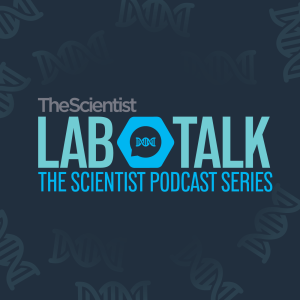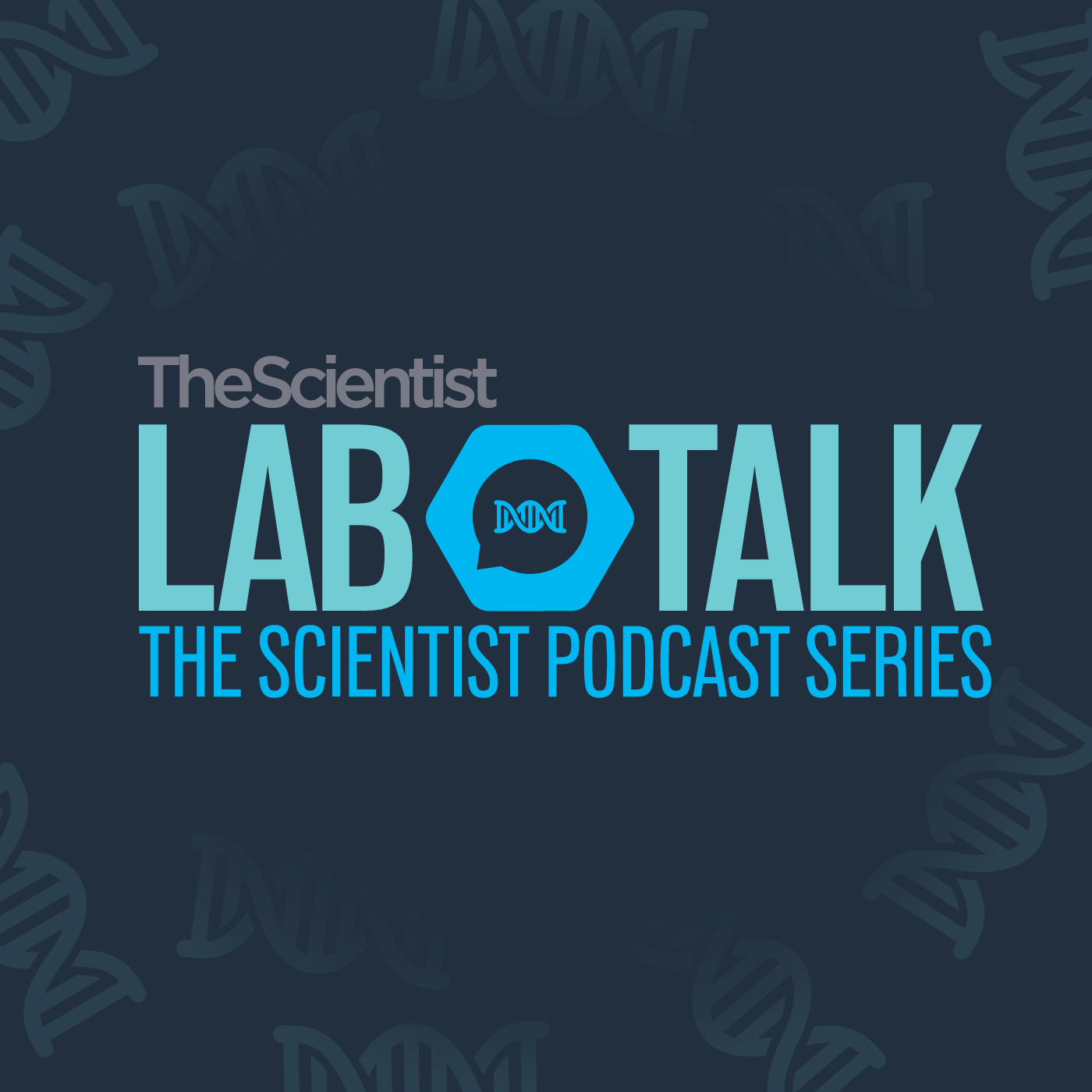Episodes

Saturday Oct 30, 2021
Hijacking Genes: Uncovering the Cause of Lineage Ambiguous Leukemia
Saturday Oct 30, 2021
Saturday Oct 30, 2021
Childhood cancer is devastating. Every year over 15,000 children in the United States are diagnosed with cancer, with leukemia accounting for 28% of all childhood cancers in children under the age of 15. Leukemia, however, is not a single class of cancer. There are numerous forms of leukemia each with its own distinct cause.
In this episode, Tiffany Garbutt from The Scientist’s Creative Services team spoke with Charles Mullighan, member of the department of pathology and deputy director of the Comprehensive Cancer Center at St. Jude Children’s Research Hospital, about the search for the molecular drivers underlying lineage ambiguous leukemias, a diverse subclass of leukemias with unknown origins.
LabTalk is a special edition podcast produced by The Scientist Creative Services Team, where we explore topics at the leading edge of innovative research. This episode is brought to you by 10x Genomics, which builds solutions for interrogating biological systems at a resolution and scale that matches the complexity of biology. Their rapidly expanding suite of products, which includes instruments, consumables, and software, enables fundamental discoveries across multiple research areas, including cancer, immunology, and neuroscience.

Saturday Jul 31, 2021
Understanding Microglial Response in Alzheimer’s Disease
Saturday Jul 31, 2021
Saturday Jul 31, 2021
A diverse population of microglial cells resides in the brain. Similar to immune cells, microglial cells respond to minute changes in their environment. Sometimes this response is beneficial and other times detrimental. Scientists are working to tease apart the dynamic role of microglial response in the pathogenesis of neurodegenerative diseases such as Alzheimer’s disease.
In this episode, Tiffany Garbutt from The Scientist’s Creative Services team spoke with Samuel Marsh, a postdoctoral research fellow in the laboratory of Beth Stevens at Boston’s Children’s Hospital and Harvard Medical School, about how he uses single cell technology and spatial transcriptomics to better understand the role of microglia in Alzheimer’s disease pathogenesis.
LabTalk is a special edition podcast produced by The Scientist Creative Services Team, where we explore topics at the leading edge of innovative research. This episode is brought to you by 10x Genomics, which builds solutions for interrogating biological systems at a resolution and scale that matches the complexity of biology. Their rapidly expanding suite of products, which includes instruments, consumables, and software, enables fundamental discoveries across multiple research areas, including cancer, immunology, and neuroscience.

Wednesday Jun 30, 2021
The Promise of Spatial Transcriptomics in Exploring Chronic Liver Disease
Wednesday Jun 30, 2021
Wednesday Jun 30, 2021
The liver performs approximately 500 separate functions in the human body. With liver disease on the rise, scientists are developing treatments to save this irreplaceable organ.
In this episode, Niki Spahich from The Scientist’s Creative Services team spoke with Prakash Ramachandran, a clinician scientist at the Centre for Inflammation Research at the University of Edinburgh, about mechanisms of scarring that lead to chronic liver disease and what he hopes to learn from biobanked patient liver samples.
The Scientist Speaks is a podcast produced by The Scientist’s Creative Services team. Our podcast is by scientists and for scientists. Once a month, we bring you the stories behind news-worthy molecular biology research. This month's episode is sponsored by 10x Genomics.

Wednesday May 05, 2021
Discovering the Secrets of Motor Neurons with Single Cell Sequencing
Wednesday May 05, 2021
Wednesday May 05, 2021
Motor neurons originating in the spine control both voluntary and involuntary movements. Even though they have an essential function, they are notoriously difficult to study.
In this episode, Niki Spahich from The Scientist’s Creative Services team spoke with Jacob Blum, a graduate student in Aaron Gitler’s laboratory at Stanford University, about his work understanding the diversity of spinal motor neurons using single cell transcriptomics.
The Scientist Speaks is a podcast produced by The Scientist’s Creative Services team. Our podcast is by scientists and for scientists. Once a month, we bring you the stories behind news-worthy molecular biology research. This month's episode is sponsored by 10x Genomics.

Tuesday Apr 27, 2021
A Modern Trojan Horse: Delivering Combination Immunotherapies to Solid Tumors
Tuesday Apr 27, 2021
Tuesday Apr 27, 2021
Chimeric antigen receptor (CAR) T cell immunotherapies hold great promise for cancer treatment, but they are not very effective against solid tumors. Niki Spahich from The Scientist’s Creative Services team spoke with Katie McKenna, postdoctoral fellow in the laboratory of Malcolm Brenner at the Center for Cell and Gene Therapy at Baylor College of Medicine, about her work developing a combination CAR T cell immunotherapy and oncolytic virotherapy to treat solid tumors.
LabTalk is a special edition podcast produced by The Scientist’s Creative Services Team, where we explore topics at the leading edge of innovative research. This episode was sponsored by IsoPlexis.

Saturday Apr 17, 2021
Bugs with Drugs: Repurposing a Pathogenic Bacteria’s Weapon
Saturday Apr 17, 2021
Saturday Apr 17, 2021
LabTalk is a special edition podcast produced by The Scientist’s Creative Services Team, where we explore topics at the leading edge of innovative research.
This episode is brought to you by Keystone Symposia. Don’t miss their upcoming virtual eSymposia Synthetic Biology: At the Crossroads of Genetic Engineering and Human Therapeutics on May 3-4, 2021.
One of the eSymposium’s speakers is Cammie Lesser, an associate professor at Massachusetts General Hospital and Harvard Medical School. Niki Spahich from The Scientist’s Creative Services team spoke with Lesser about her research developing designer probiotics to deliver protein-based therapeutics to the gut.

Wednesday Mar 31, 2021
Wednesday Mar 31, 2021
The human immune system is highly complex and variable. Some people mount robust responses to infection, vaccination, or immunotherapy, while others fail to react appropriately. These differences have obvious implications for health and disease, and they have been especially appreciated during the COVID-19 pandemic as some individuals show no symptoms after contracting SARS-CoV-2 while others experience severe, life-threatening disease.
In this episode, Niki Spahich from The Scientist’s Creative Services team spoke with John Tsang, co-director of the National Institutes of Health Center for Human Immunology about how he uses innovative single-cell technology to discover early predictors of an individual’s immune response to stresses such as vaccination, autoimmunity, and SARS-CoV-2 infection. Notably, his team identified signatures of severe COVID-19 connected to a late wave of inflammation.
John Tsang expresses his own opinions in this episode, and they do not necessarily represent the views or policies of the NIH.
LabTalk is a special edition podcast produced by The Scientist’s Creative Services Team, where we explore topics at the leading edge of innovative research. To keep up to date with this podcast, follow The Scientist on Facebook and Twitter, and subscribe to our podcast channel wherever you get your podcasts. This episode was sponsored by 10x Genomics.

Friday Dec 11, 2020
The Past, Present, and Future of Gene Therapy: How to Scale-up Successfully
Friday Dec 11, 2020
Friday Dec 11, 2020
The Scientist’s LabTalk is a special edition podcast produced by The Scientist’s Creative Services Team where we explore topics at the leading edge of innovative research.
In this episode, Niki Spahich from The Scientist’s Creative Services team spoke with Josh Snow, Director of Business Development and Marketing Strategy at Mirus Bio, about the past, present, and future of gene therapy, with a focus on how researchers can transition their successful therapies to clinical trials and the market, and the costs involved.
This episode is brought to you by Mirus Bio. Mirus Bio pioneered scientific breakthroughs in non-viral gene delivery and continues to produce world-class transfection reagents. Now as a global leader in transfection technology, Mirus Bio provides life scientists with the most advanced tools for gene expression, biotherapeutic protein production, virus manufacturing and genome editing.

Friday Nov 13, 2020
Friday Nov 13, 2020
Welcome to The Scientist’s LabTalk, a special edition podcast produced by The Scientist’s Creative Services Team where we explore topics at the leading edge of innovative research. This episode is brought to you by Keystone Symposia. Don’t miss their upcoming virtual eSymposia Tuberculosis: Science Aimed at Ending the Epidemic on December 2-4, 2020.
One of the symposium’s co-organizers and keynote speaker is David Alland, Chief of Infectious Disease and Director of the Center for Emerging Pathogens and the Center for COVID-19 Response and Pandemic Preparedness at Rutgers New Jersey Medical School. Niki Spahich from The Scientist’s Creative Services team spoke with Alland about his journey to develop a rapid, point-of-care tuberculosis diagnostic and his current research on mutations that lead to drug resistance.

Monday Oct 19, 2020
Surviving Stress: The Mysteries of Neuronal Survival and Neurodegeneration
Monday Oct 19, 2020
Monday Oct 19, 2020
Welcome to The Scientist’s LabTalk, a special edition podcast produced by The Scientist’s Creative Services Team where we explore topics at the leading edge of innovative research.
In this episode, we explore how neurons withstand stress by looking at three cutting edge technologies: CRISPR, stem cell technology, and single-cell sequencing. Tiffany Garbutt from The Scientist’s Creative Services team spoke with Martin Kampmann, associate professor at the University of California San Francisco, Chan Zuckerberg Biohub investigator, and Paul G. Allen Distinguished Investigator to learn more.
This episode is brought to you by 10x Genomics. 10x Genomics builds solutions for interrogating biological systems at a resolution and scale that matches the complexity of biology. Their rapidly expanding suite of products, which includes instruments, consumables, and software, enables customers to make fundamental discoveries across multiple research areas, including cancer, immunology, and neuroscience.

